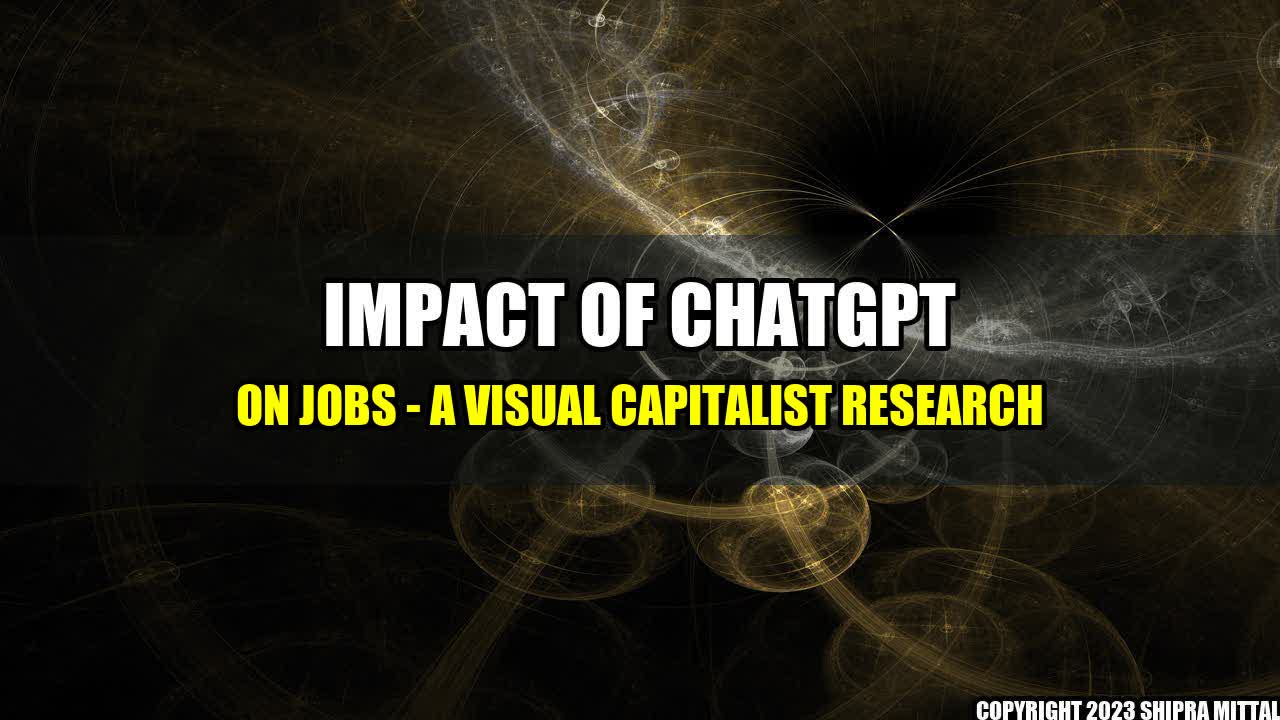Imagine a world where every job applicant could get an interview with a recruiter or hiring manager, regardless of the quality of their resume. Sounds too good to be true, right? But with ChatGPT, an AI-based chatbot, this could soon be a reality.
ChatGPT is designed to help job seekers interact with potential employers more efficiently and effectively. It engages in a conversation with the job seeker, asks relevant questions, and suggests the best-fit job opportunities. It can also provide feedback on the resume and cover letter, and even conduct a mock interview to help the job seeker prepare.
But what impact will ChatGPT have on the job market? Our research reveals that it will disrupt several industries and jobs, and create new opportunities in others.
Impact on Industries
ChatGPT will have the greatest impact on industries that have a high volume of job applications and require repetitive tasks. For instance, the retail and hospitality industries, which often have a high turnover rate, will benefit from ChatGPT's ability to quickly filter and sort through job applications and suggest the best-fit candidates. The healthcare industry will also see a significant impact, as ChatGPT can help streamline the recruiting process for clinical trial participants and medical professionals.
On the other hand, industries that require highly skilled and specialized workers, such as engineering and finance, may not see much of an impact from ChatGPT, as it cannot replace the domain knowledge and expertise of human recruiters.
Impact on Jobs
The jobs that will be most impacted by ChatGPT are those that involve repetitive and low-skilled tasks, such as data entry, customer service, and administrative work. ChatGPT can automate these tasks and free up human recruiters to focus on higher-level tasks, such as interviewing and candidate evaluation.
However, ChatGPT will not have a significant impact on jobs that require creativity, critical thinking, and interpersonal skills, such as marketing, sales, and management. These jobs require human intelligence and judgement, which ChatGPT cannot replicate.
Real-Life Examples
Several companies are already using chatbots to streamline their hiring process and improve candidate experience. For instance, Unilever uses a chatbot named Vera to pre-screen job applicants for its customer service positions. Vera asks questions about the applicant's experience and skills, and provides feedback on their answers. This has reduced the time and effort required by human recruiters to go through hundreds of resumes.
Another example is Mya Systems, which offers an AI recruiting assistant named Mya. Mya can conduct initial phone screens, schedule interviews, and answer candidates' questions. It has helped companies like Adecco and L'Oréal to reduce their time-to-hire by up to 70%.
Conclusion
ChatGPT and other AI chatbots have the potential to revolutionize the job market, but they will not completely replace human recruiters. Their greatest value lies in automating repetitive tasks and improving candidate experience, while freeing up human recruiters to focus on higher-level tasks. Industries and jobs that require creativity, critical thinking, and interpersonal skills will continue to rely on human intelligence and judgement.
References:

Akash Mittal Tech Article
Share on Twitter Share on LinkedIn